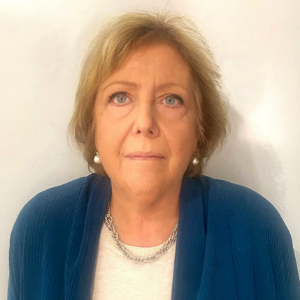Title : An innovative in vitro human-based millifluidic platform as useful tool to underlying mechanisms of neurodegeneration in glaucoma
Abstract:
Several neurodegenerative diseases, including glaucoma, diabetic retinopathy, and age-related macular degeneration all involve retinal cell death. Neuroprotection is an important goal for the prevention and treatment of neurodegeneration. To this end, having reliable experimental models of retinal neuronal injury is important for developing novel therapeutic strategies and for assessing the efficacy and adverse effects of symptomatic treatments. Glaucoma occurs slowly and gradually through the progressive loss of retinal ganglion cells and the injury of the optic nerve. Among glaucoma types, Primary Open Angle Glaucoma is the most common and is usually characterized by an elevated Intraocular Pressure (IOP) resulting in damage to RGCs. However, the underlying mechanisms of glaucoma are still not fully clear, and IOP should be considered only one piece of a multi-faceted neurodegenerative disease. To define the key events of glaucoma onset, our team set up an in vitro 3D-innovative humanbased model (IVOM) of human trabecular cells (HTMC) on an IvTech-millifluidic platform equipped with a pressure modulator. We demonstrated that, during the prolonged exposure (72 hrs) to oxidative stress and intraocular pressure elevation, HTMC underwent an adaptative response. 3DHTMCs were analyzed in term of viability, senescence, apoptosis, pro-inflammatory and profibrotic cytokines, mitochondrial function and reactive oxygen species production. The potential usefulness of this platform for high-throughput screening of drug formulations to treat POAG was verify by analysing the therapeutic effects of two known glaucoma-treatments, iTRAB® and Citicoline, on proposed human advanced 3D platform and we confirmed that the selected biomarkers can be potentially useful for an POAG-targeted therapeutic strategy. Moreover, to investigate if IVOM it can be a useful tool for check the occurrence of neuronal damage, human 3D neuron-like cells (retinoic acid-differentiated SH-SY5Y) were exposed to stressed HTMC-conditioned medium and, it was observed an impairment of neural cell behavior by way of a cellular cross-talk [1-3].
Currently, the only therapeutic target for medical and surgical treatment is to slow down the progression of the disease by IOP management, but these approaches often fail to deliver a positive outcome. Although many molecular targets, potentially involved in neuronal death and deterioration, have been proposed and tested, to date, there are no approved neuroprotective drugs for retinal ganglion cells (RGC), highlighting the need for new experimental approaches for studying glaucoma. So, we considered enhancing our IVOM platform by adding retinal organoids obtained from human pluripotent stem cells. Our preliminary results by in-depth protein characterization of over 30-days differentiated Retinal Organoids with defined culture media (without animal reagent), have pointed out that we had actually obtained stage1-ROs, that is, the stage of early-born retinal cell types (e.g., ganglion, horizontal, cone, and certain subtypes of amacrine cells). Further investigation is needed to standardize the methodology used in order to set up an enhanced in vitro advanced model of Retinal Organoids that we can then propose in the future as a useful tool for testing neuroprotective strategies.
1. Saccà SC, et al. ALTEX (2020) doi: 10.14573/altex.1909262
2. Vernazza S, et al. IJMS (2021) 22:7994. doi: 10.3390/ijms22157994
3. Vernazza S, et al., IJMS (2021) 22:12129. doi: 10.3390/ijms222212129




